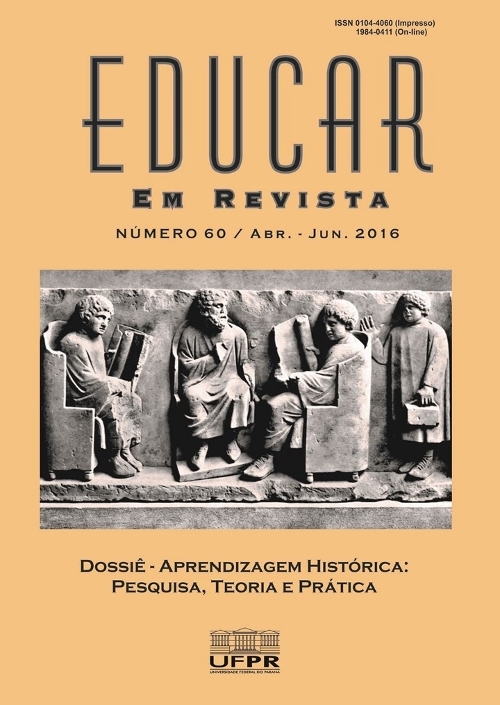The relationship between narrative construction and identity in History Education: implications for teaching and learning
Abstract
The purpose of the research is less about producing little historians and more about taking into account students’ cultures or identities in the teaching and learning of historical narratives. In my work, I have examined the national historical narratives that children and adolescents in the United States have constructed in order to assess the effects of young people’s racial/ethnic identities on their understandings of the past. I have found that young people’s racial identities had a significant impact on their interpretations of U. S. history and that their teachers’ instruction had some but not much impact on their views. Researchers within and beyond the U. S. have found similar results, attesting to the significance of “identity” (a person’s sense of self and the communities s/he affiliates with, including nationality, gender, ethnicity, religious orientation, etc.) in the construction and/or critique of historical narratives. In the following pages, I review and synthesize the studies that I and others have conducted on the effects of identity on history teaching and learning, and conclude with a discussion of the implications for teaching and learning history in diverse democratic societies.
Published
How to Cite
Issue
Section
License
Copyrights for articles published in Educar em Revista belong to the author, with the first publication copyrights reserved to the journal. The journal offers public access (Open Access), and its articles are of free use, with specific assignments, in educational and non-commercial applications.



